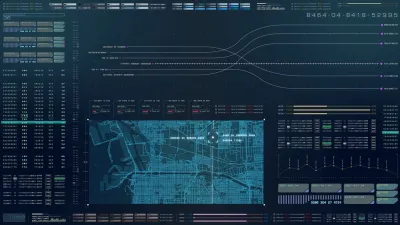Steve Lohr profiles New York University's Center for Urban Science and Progress, which is beginning to generate dividends in its study, and application of, smart city technology.
The Center for Urban Science and Progress "is part of a broader trend: the global drive to apply modern sensor, computing and data-sifting technologies to urban environments, in what has become known as 'smart city' technology," explains Lohr. "The goals are big gains in efficiency and quality of life by using digital technology to better manage traffic and curb the consumption of water and electricity, for example."
“'The Smart City movement,' according to a report this month from IDC, a technology research firm, 'is emerging and growing as a significant force of innovation and investment at all levels of government.' The N.Y.U. center’s partners include technology companies like I.B.M., Cisco Systems and Xerox, as well as universities and the New York City government."
This partnership has already proven fruitful for the City of New York, who've received assistance in tackling illegal conversions. Guided by data predictions from the N.Y.U. team, city building inspectors were able to increase their discovery of high-risk conditions from 13 percent of visits to 70 percent.
Next up for the team: noise, "[t]he largest single cause of complaints to New York’s 311 phone and online service."
FULL STORY: SimCity, for Real: Measuring an Untidy Metropolis

Maui's Vacation Rental Debate Turns Ugly
Verbal attacks, misinformation campaigns and fistfights plague a high-stakes debate to convert thousands of vacation rentals into long-term housing.

Planetizen Federal Action Tracker
A weekly monitor of how Trump’s orders and actions are impacting planners and planning in America.

In Urban Planning, AI Prompting Could be the New Design Thinking
Creativity has long been key to great urban design. What if we see AI as our new creative partner?

Portland Raises Parking Fees to Pay for Street Maintenance
The city is struggling to bridge a massive budget gap at the Bureau of Transportation, which largely depleted its reserves during the Civd-19 pandemic.

Spokane Mayor Introduces Housing Reforms Package
Mayor Lisa Brown’s proposals include deferring or waiving some development fees to encourage more affordable housing development.

Houston Mayor Kills Another Bike Lane
The mayor rejected a proposed bike lane in the Montrose district in keeping with his pledge to maintain car lanes.
Urban Design for Planners 1: Software Tools
This six-course series explores essential urban design concepts using open source software and equips planners with the tools they need to participate fully in the urban design process.
Planning for Universal Design
Learn the tools for implementing Universal Design in planning regulations.
Gallatin County Department of Planning & Community Development
Heyer Gruel & Associates PA
JM Goldson LLC
City of Camden Redevelopment Agency
City of Astoria
Transportation Research & Education Center (TREC) at Portland State University
Jefferson Parish Government
Camden Redevelopment Agency
City of Claremont





























